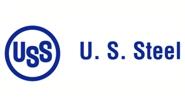Government/Policy

September 8, 2016
US Steel Presents Arguments Against China in Section 337 Suit
Written by Sandy Williams
US Steel presented its arguments to the US International Trade Commission on why its Section 337 price fixing claim should not be terminated. Counsel for US Steel told Administrative Law Judge Dee Lord that the Respondents from China have presented a “flawed misapplication of law governing pricing fixing and Section 337 investigations.”
“Accepting Respondents’ erroneous legal arguments would effectively curtail any Section 337 actions to remedy price fixing conspiracies and give foreign companies free license to fix prices and output, then import and sell their products in the United States, all to injure the domestic industry. Such a result would be inconsistent with the Commission’s decision to institute this investigation and would directly contradict the unambiguous direction Congress gave when it adopted Section 337—that the statute was intended to reach all forms of unfair competition and unfair acts related to imported goods.”
US Steel said the respondents in the case have failed to show “good cause” to terminate US Steel’s price fixing claim. The respondents assert they should be allowed to question whether the case should have been initiated without a discovery process. US Steel said that the Commission cannot initiate an investigation until it is satisfied that there is sufficient merit to the complaint. The Commission was satisfied that the complaint was strong enough to warrant a claim for relief on the matter of price fixing.
Another argument that counsel for the China steel industry put forth was that price fixing may not form the basis of a Section 337 investigation unless it also alleges “predatory pricing” and “antitrust injury.”
US Steel says that Section 337 is not a district court action where those concepts would apply, but instead a trade statute that provides specific remedies separate and apart from those of a district court. The elements of predatory pricing and antitrust injury are not part of the language of the Section 337 statute.
US Steel was required to show under Section 337 “[u]nfair methods of competition and unfair acts in the importation of articles . . . into the United States . . . the threat or effect of which is—(i) to destroy or substantially injure an industry in the United States . . . or (iii) to restrain or monopolize trade and commerce in the United States.”
Price fixing is interpreted by the Supreme Court as an illegal agreement among competitors to fix price or output regardless of whether the price fixed is low, depressed or reasonable. The respondents in the investigation claim the only time a price fixing claim is available is when it is based on predatory pricing. US Steel says predatory pricing is not price fixing but is an action by a single actor against its rivals.
Antirust injury also does not apply in Section 337 investigations, said counsel for US Steel. Antitrust injury is a concept that limits the ability of companies to sue their competitors. The respondents assert that antitrust injury is derived from Section 1 of the Sherman Act which prohibits price fixing, when in fact it is from Section 4 of the Clayton Act. The concept of antitrust injury protects competition and consumers, not competitors, said US Steel counsel.
US Steel counsel said, “Section 337 is a trade statute that protects domestic industries from unfair trade practices involving the sale of imported goods….By importing a consumer-protection focused antitrust injury requirement into Section 337, Respondents ignore the critical distinctions between the language and purposes of the two statutes, and attempt to create a barrier to prevent domestic industries from bringing price fixing allegations before the Commission.”
US Steel alleges that the respondents in China are competitors who conspired to set prices and outputs on carbon and alloy steel products and share competitively sensitive information. US Steel alleges that the mandate of the China Iron and Steel Association (CISA) is to “fix prices and regulate production among horizontal competitors.” Instead of reducing capacity to appropriate levels, said US Steel, the Chinese steel industry conspired to strategically export its excess production by fixing prices and output. The result kept Chinese mills running and workers employed while causing substantial harm to the U.S. domestic steel industry and US Steel in particular.
US Steel concludes its argument by requesting that its price fixing claim should not be terminated.
“U. S. Steel respectfully requests that the ALJ deny—for the third time—Respondents’ attempts to dismiss the price fixing claim.”







